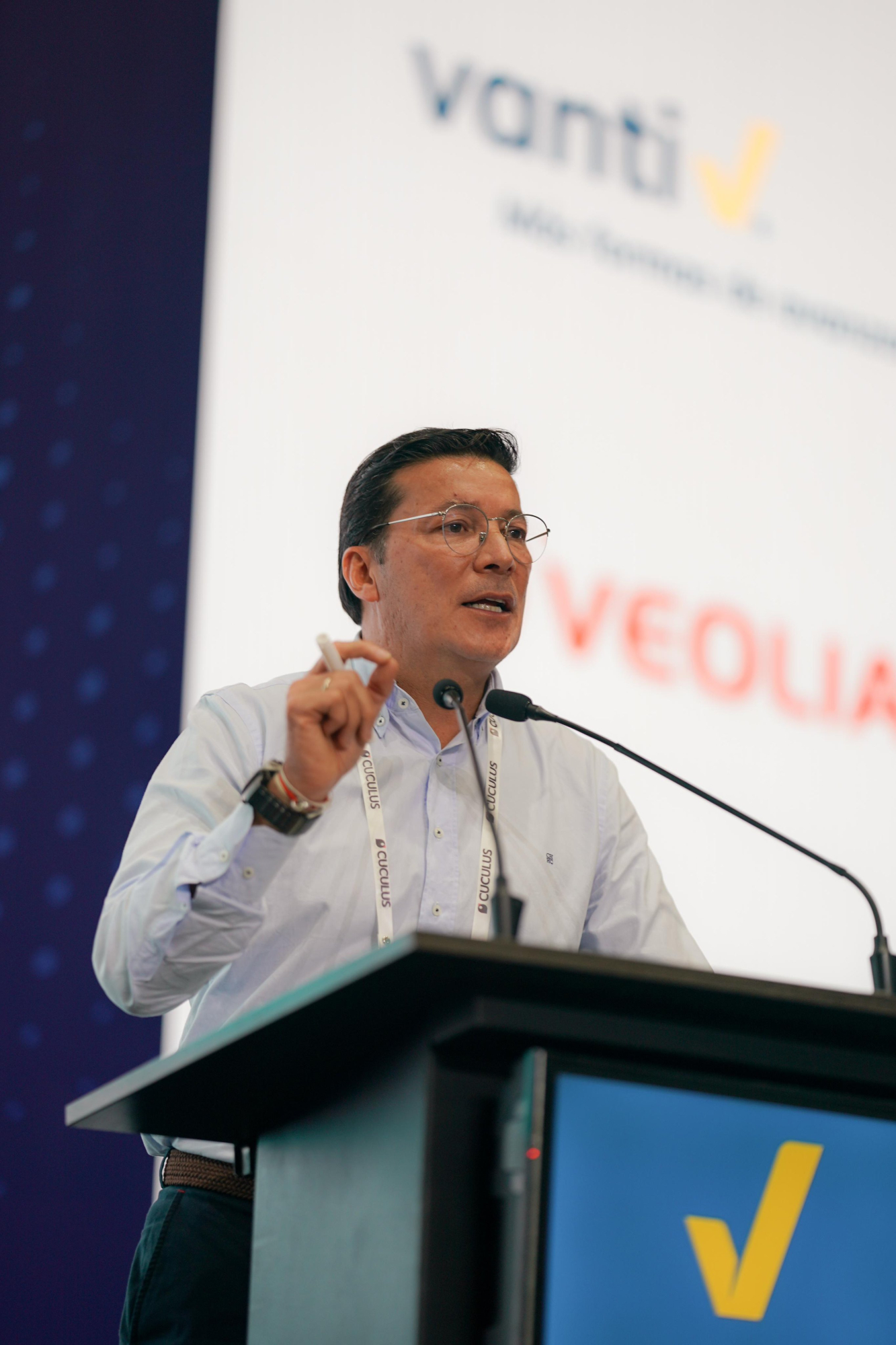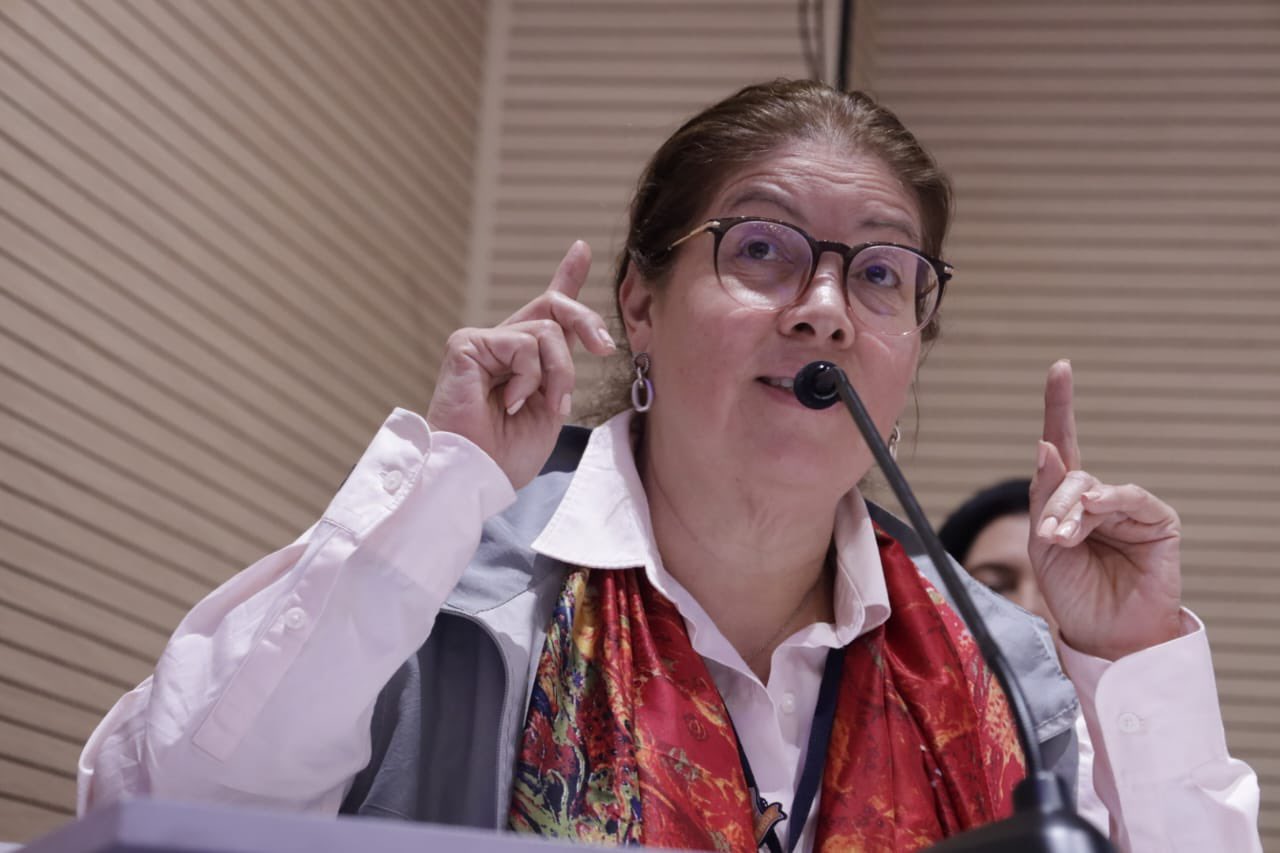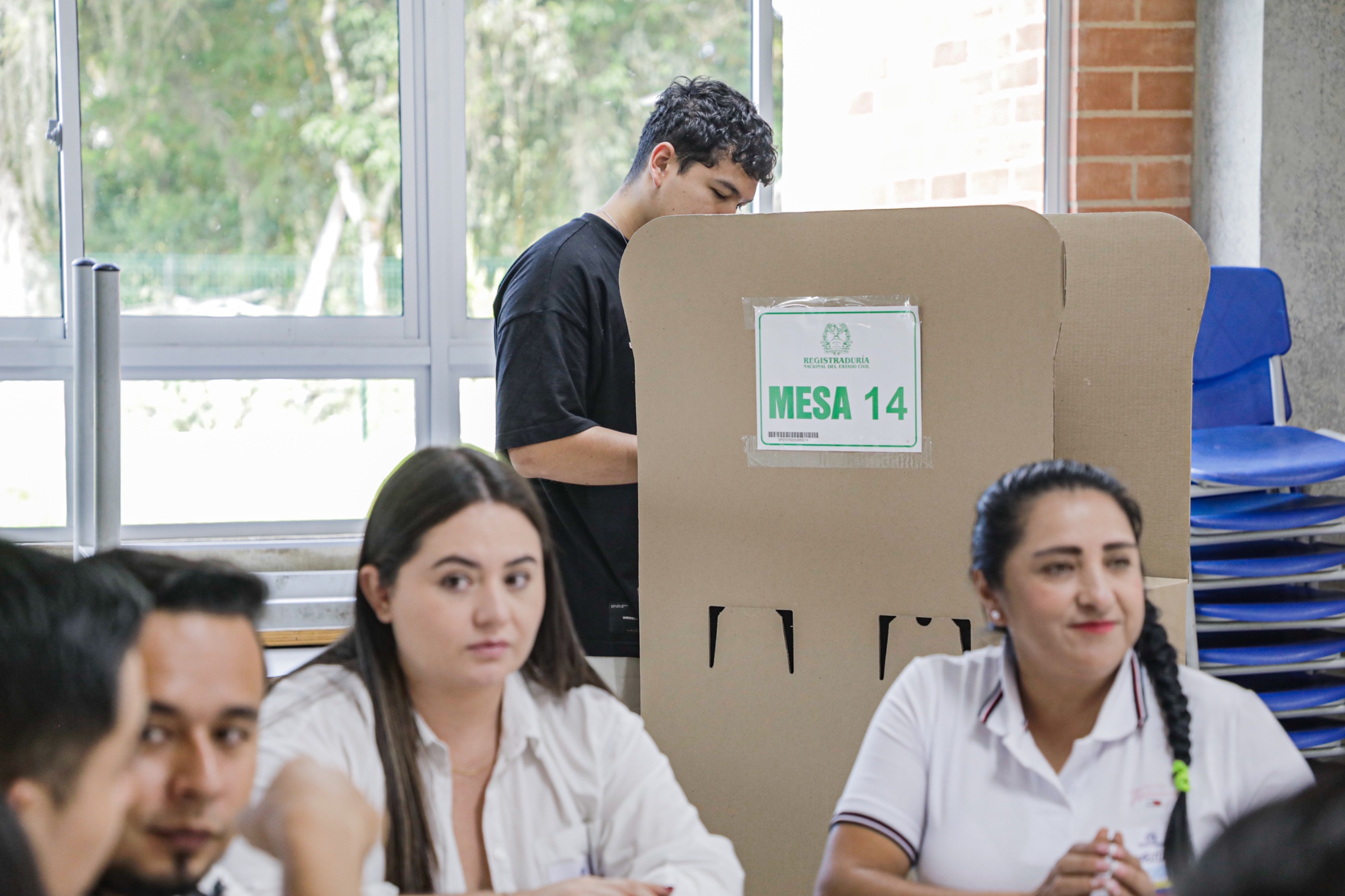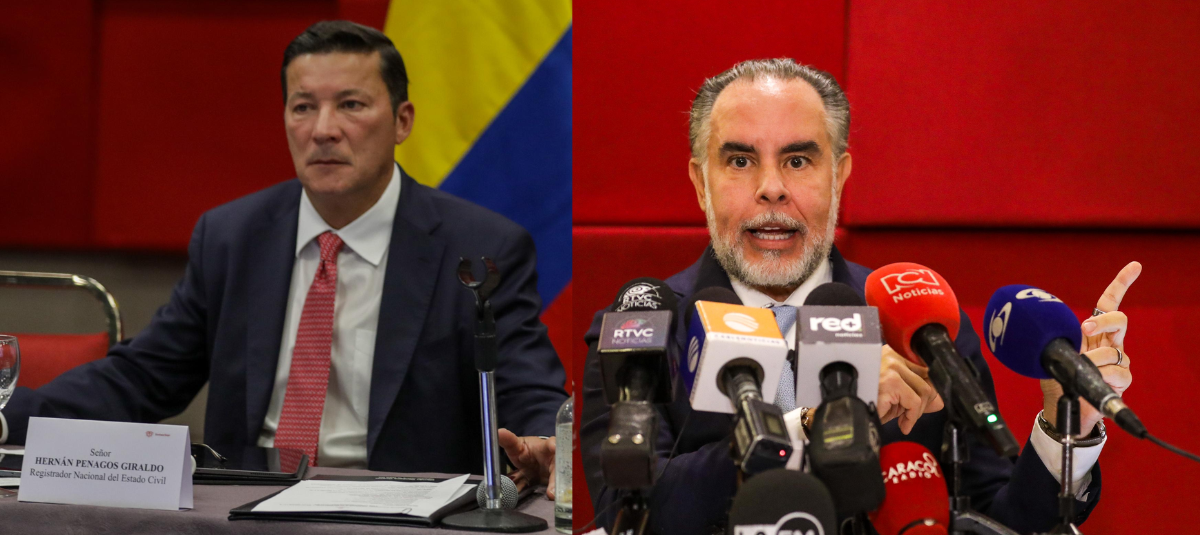The Registry reactivated technical panels on the awarding process for the logistics of the upcoming elections.

This weekend, the Registry shared with election observers the procurement process for logistics for the upcoming elections for the Municipal Youth Councils, Congress, and the Presidency of the Republic. The contract, worth more than 2.1 billion pesos, was awarded to the Temporary Union for Electoral Logistics Integration 2026 (UT ILE 2026), a company comprised of Thomas Greg & Sons.
The electoral authority's plan is to convene various stakeholders to demonstrate how the various stages of the contract are being carried out. This comes amid questions from the Executive Branch regarding the transparency of the elections, a position that has generated strong statements from the political, legal, and trade union communities in support of the soundness of the Colombian electoral system.

The national registrar, Hernán Penagos. Photo: Registry Office
The contract includes 16 goods and services to be provided: citizen registration, registration of candidate registration committees, review of support from registration committees, registration of candidates, voting juries, electoral kit, voter information, biometric authentication, polling station control application, pre-count, communications network, scrutiny, E-14 digitization (delegates), E-11 digitization, computer security, and help desk.
"The electoral provider will be responsible, among other things, for producing the electoral materials and distributing them throughout the country; for digitizing the E-14 forms; and for the citizen registration process. It will also be responsible for the pre-count, help desks, and some infrastructure issues," commented registrar Hernán Penagos.
Alejandra Barrios , director of the Electoral Observation Mission (EOM), indicated that it is essential that the technical committees have been reactivated. "For years, we have promoted these spaces to review the terms of the contract, the processes, and procedures in place. This type of setting, where a calm, honest, and technical conversation can be held about what will be implemented in the coming months , is key to assessing the logistical quality of next year's elections," she emphasized.

Alejandra Barrios, director of the MOE. Photo: MOE
María Carolina Castillo, president of Probogotá Region, stated, "We were very pleased to see the rigor of the selection process, the experience from previous processes, and how many of the issues encountered in the past were resolved."
For her part, Sandra Martínez, program director of Political System and State Initiatives at Transparencia Colombia, emphasized that "they have been very clear in all the processes related to the selection of the temporary union that will assume this task. Multiple measures are being taken to adequately address the various aspects of the pre-electoral, electoral, and post-electoral stages. This is protecting the upcoming process, which is of great importance to everyone," she stated.
The Registry's plan to protect the integrity of the elections 
Atypical mayoral election in Chitaraque (Boyacá). Photo: Registry Office
The doubts emanating from the National Government have not changed the plans of the Registry Office, which maintains that several actions have been in place for several months to ensure the transparency of the upcoming electoral processes and dispel any doubts.
The electoral authority cites five key actions to build trust: robust audits, access to the source code of the counting software, international observation, facial biometrics to control identity theft, and publication of all voting records.
According to sources from the organization, this surpasses what any other South American country does to strengthen its electoral system, with all kinds of actors involved in its proper development and oversight. "It's a very robust system," they say.
However, Registrar Penagos has personally taken it upon himself to knock on doors within the Public Forces, oversight bodies, and national and international observation organizations to request support for the integrity of the process. He contacted Defense Minister Pedro Sánchez, first and foremost, to strengthen security for the atypical elections that have taken place in various regions. During these conversations, the idea of bringing together all departmental police delegates to monitor public order emerged.

Registrar Hernán Penagos and Interior Minister Armando Benedetti. Photo: César Melgarejo, EL TIEMPO
Likewise, there was a dialogue with Prosecutor Luz Adriana Camargo to establish the National Commission against Electoral Crimes, and last Monday, more than 20 national and international observers, including the European Union, the OAS, the Carter Center, the EOM, and Transparency for Colombia, were invited to Penagos' office to address concerns and invite them to monitor next year's elections.
Behind closed doors, Penagos has issued instructions to take all possible actions to build trust and combat misinformation. In this regard, the creation of applications or chatbots is also planned to provide citizens with information about the process, as well as the use of data analytics to cross-reference information to counteract electoral transhumance and transmit it to the CNE.

Follow news from Bogotá, Colombia, and the world. Photo:
Juan Pablo Penagos Ramirez
eltiempo





